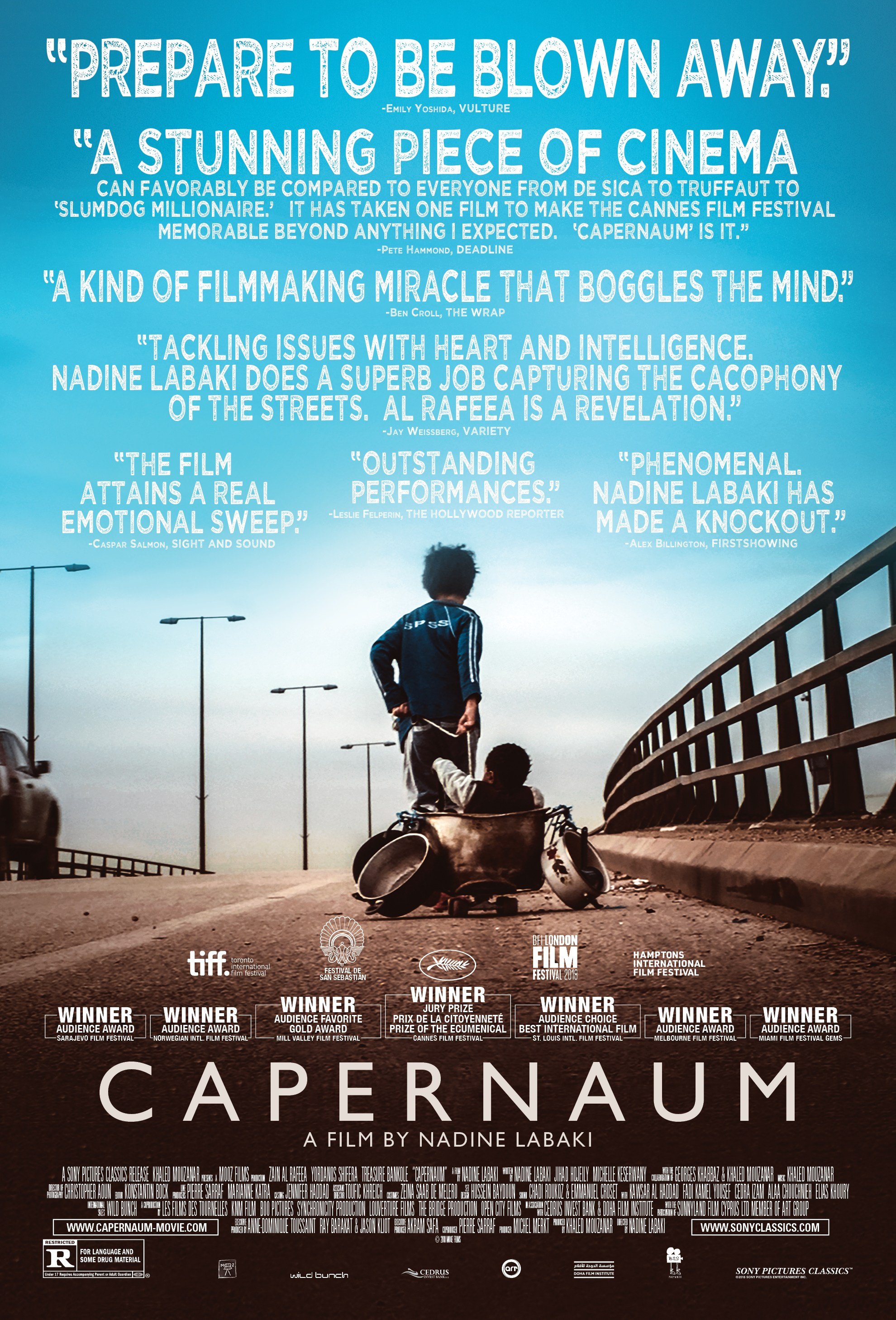
How to be at home
In 2010, the poet, musician Tanya Davis wrote the beautiful poem, How to Be Alone, and from this we collaborated to make the film which you can see here. Ten years later, Tanya has written the gorgeous and poignant poem for these times, How to Be at Home, and we found ourselves collaborating again! This animation was created in my home studio in Halifax, Nova Scotia, while in social isolation through the spring and summer of 2020.
Poem written by Tanya Davis
Directed, animated and edited by Andrea Dorfman

Capernaum
Capernaüm ("Chaos") tells the story of Zain, a Lebanese boy who sues his parents for the "crime" of giving him life. The film follows Zain as he journeys from gutsy, streetwise child to hardened 12-year-old "adult" fleeing his negligent parents, surviving through his wits on the streets, where he meets Ethiopian migrant worker Rahil, who provides him with shelter and food, as Zain takes care of her baby son Yonas in return. Zain later gets jailed for committing a violent crime, and finally seeks justice in a courtroom.

the wisdom of trauma
In The Wisdom of Trauma, we travel alongside physician, bestselling author and Order of Canada recipient Dr. Gabor Maté to explore why our western society is facing such epidemics. This is a journey with a man who has dedicated his life to understanding the connection between illness, addiction, trauma and society.

UMBILICAL
This piece explores how my mother’s abusive relationship with my father shaped my own experiences in a boarding school as a child in China. The societal pressures on my mother to hide her abuse and her desire to protect me ultimately created a situation where I was subjected to the same societal pressures. Our shared desires for intimacy, safety, and normalcy have been constantly at odds with the realities that surround us. Through a conversation as adults, my mother and I learn to understand each other and support one another.

Children and the Vagus Nerve
The vagus is the longest nerve of the autonomic nervous system in the human body.

Resilience: THE BIOLOGY OF STRESS & THE SCIENCE OF HOPE
THE CHILD MAY NOT REMEMBER, BUT THE BODY REMEMBERS.
Researchers have recently discovered a dangerous biological syndrome caused by abuse and neglect during childhood. As the new documentary Resilience reveals, toxic stress can trigger hormones that wreak havoc on the brains and bodies of children, putting them at a greater risk for disease, homelessness, prison time, and early death. While the broader impacts of poverty worsen the risk, no segment of society is immune. Resilience, however, also chronicles the dawn of a movement that is determined to fight back. Trailblazers in pediatrics, education, and social welfare are using cutting-edge science and field-tested therapies to protect children from the insidious effects of toxic stress—and the dark legacy of a childhood that no child would choose.

Jeux Interdits (Forbidden Games) Rene Clement, 1952
Jeux Interdits (Forbidden Games) is one of the first films to ever depict the emotional toll of warfare. Unlike most war trauma films, the focus here is placed on children living in a warzone. During German bombing of France in 1940, 5-year-old Paulette’s (Brigitte Fossey) family is killed and she is left orphaned. She is taken in by Michel (Georges Poujouly) and his family. She and Michel, who is 10, are each having trouble dealing with the death and destruction around them.

Vulnerable Minds: The HARM of Childhood Trauma and the HOPE OF Resilience
In Vulnerable Minds, Hauser provides a new, scientific and humanistic understanding of how the nature of childhood adversity creates unique signatures of trauma. At the same time, Hauser reveals that some children bounce back from adversity, presenting with signatures of resilience. Hope for these children comes from designing interventions that are sensitive to their signatures, enabling greater resilience to and recovery from trauma.

How early life adversity transforms the learning brain
For educators to help children exposed to adverse life experiences, it is necessary to understand how adversity impacts different mechanisms of learning, emotion, and planning as these capacities underpin success in schools and beyond. The goal of this paper is to review essential findings on how early life adversity transforms the brain which, in turn, impacts educational outcomes. Part 1 begins by discussing the species‐specific and expectant experiences that guide typical development, and then turns to early life adversities and their relationship to both physical and mental health outcomes. Part 2 summarizes four dimensions of adversity—type, timing, term, and toxicity—and how each differentially impacts the developing brain, including individual differences in psychopathology.
